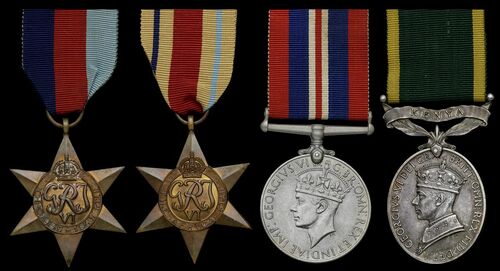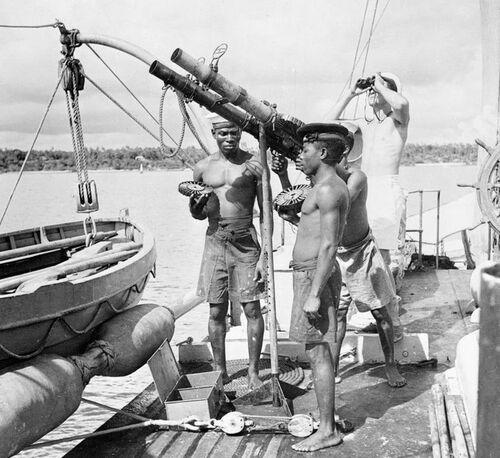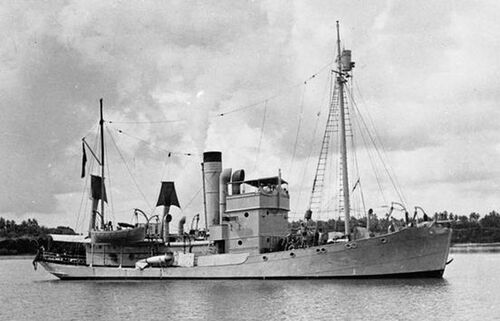Auction: 23001 - Orders, Decorations and Medals
Lot: 171
A rare 'Kenya' Efficiency Medal group of four awarded to Lieutenant-Commander N. H. Lee, Kenya Royal Naval Volunteer Reserve, who was Second-in-Command of this small force, which saw him command the Oryx and Sobkra during the Second World War
1939-45 Star; Africa Star; War Medal 1939-45; Efficiency Medal, Kenya, G.VI.R. (Lieut. N. H. Lee.), officially impressed naming on a pre-prepared ground, good very fine and rare (4)
Nicholas Heathcote Lee was born on 21 March 1905 in London and lived at 105 Albert Bridge Road, Battersea. He was educated at Winchester College from 1919-22 - the College which his grandfather, The Reverend G. B. Lee, had been Warden from 1861-1903 and which another relative, Dr Wharton, had been Headmaster from 1766-93 - and then went to sea with the Booth Steamship Company from 1923 on the South America run.
Lee thence went out to East Africa in 1927 and began out in Kenya managing a farm, before owning his own property. He attended the 1937 Coronation Ball at Government House and farmed on the Kinangop, also owning the houses called 'Occasionally' and 'Sometimes'.
With the outbreak of the Second World War and taking into account his seagoing experience, Lee was commissioned into the Kenya Royal Naval Volunteer Reserve and initially posted to the Oryx. She had been completed in August 1927 and was a Norwegian whaler - taken over by the Admiralty in October 1940 - with a striking image of an Officer and three local Seamen manning her guns held in the collection of the Imperial War Museum - it seems almost certain the Officer is Lee.
He was made Lieutenant-Commander in April 1944, commanded the Sobkra from February 1945 and is noted as '...commanding various craft, Indian Ocean, Italian Somaliland and Persian Gulf' during the conflict. After the Second World War he returned to farming, served in local Government and was also a fine polo player. With the Mau-Mau Emergency, his farm was within one of the most unsettled areas and he chose to leave Kenya soon after its independence. Together with his family he settled and continued farming, initially in New South Wales and eventually in Northern Queensland. He returned to Winchester to show his family the College and visit old friends and died at Ravensbourne, near Toowoomba, on 31 January 1978; sold together with copied research.
Subject to 20% VAT on Buyer’s Premium. For more information please view Terms and Conditions for Buyers.
Sold for
£500
Starting price
£280









